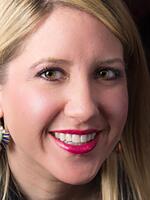Illinois makes it tough for independent and third-party candidates to run for office, especially when compared with the petition rules for Democratic and Republican candidates.
Democratic U.S. Sen. Dick Durbin says there’s good reason for some disparity.
“Those of us ... many of us here are invested in a party structure that invests a lot in making sure we field a slate of candidates, year in, year out, election after election," Durbin said. "If you want to appear out of nowhere and be treated similarly, you have to have a claim of legitimacy."
Still, Durbin says that threshold is too high. "You can put a number in place that is within the grasp of somebody who is hard-working," he said.
The number of petition signatures a candidate must get in order to run for Congress depends on how many people within the district voted in the last election.
Whether the lopsided Illinois requirements are unconstitutional is the subject of a contining lawsuit brought by Bloomington Dr. David Gill.
He dropped a bid to run as in independent in the 13th Congressional district, but he's still suing to challenge the law.
To make it on the fall ballot, Gill would have had to file roughly 14 times as many signatures as established party candidates, including Republican U.S. Rep. Rodney Davis.
At a recent debate, Davis wouldn’t say whether the law should change, as that’s not up to Washington. “There’s always instances where signature petition requirements come into question,” Davis said. “These are the types of debates that I think our state legislators need to have. Maybe this instance this year will allow them to do that.”
Davis’s Democratic challenger, Mark Wicklund, says he’s open a change in the law, but he also blamed Gill for coming up short with his petitions.
“I personally have been part of organizations that have gone out and got 100,000 in 30 days," Wicklund said. "To say that it’s impossible to get 11,000 signatures, that’s not right. It’s a clear method on how you get there, and the process he went about collecting … was the problem.
“If we open this up to anybody getting on the ballot, as an independent" Wicklund said at the same debate earlier this month, "we’re going to have a field so big it’s going to look like the Republican primary race.”



